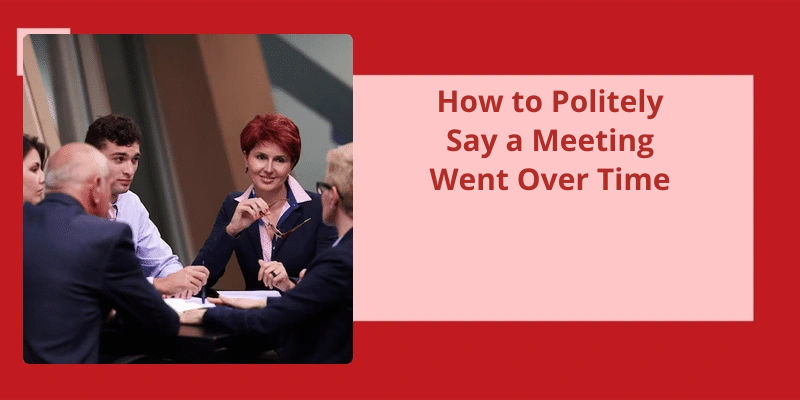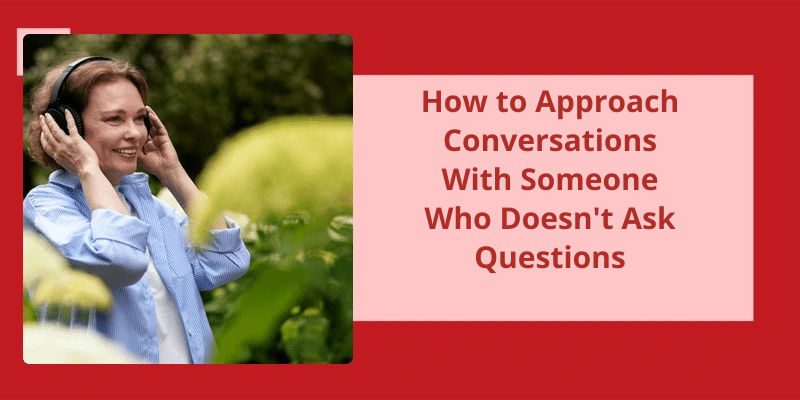In today's fast-paced and busy world, time is of the essence, and punctuality is a highly valued trait. However, sometimes things don't go as planned, and meetings end up taking longer than anticipated. In such instances, it's essential to communicate effectively and convey the situation appropriately to avoid any misunderstandings. One of the commonly used phrases to indicate when a meeting has gone over it’s designated time frame is "The meeting went over time." This phrase is often used interchangeably with "The meeting ran on" and "The meeting finished late" in British English. Although this might seem like a minor issue, it can have significant implications on future schedules, workloads, and productivity. Therefore, it's imperative to use the right terminology to avoid any confusion and ensure that everyone is on the same page.
What Does Meeting Over Mean?
When a meeting comes to a close, it’s common to use a phrase that signifies the end of the conversation. “Meeting over” is one such phrase that denotes the conclusion of a meeting or gathering. This phrase is generally used in a professional setting, where it’s necessary to communicate the end of the meeting to participants.
For instance, “finished,” “ended,” “done,” or “completed” are common words that people use to signify that the meeting has concluded. However, individuals may have a preference for using a particular term over others, depending on their profession, preference, or personal style.
The phrase “meeting over” is also used in virtual meetings, where individuals attend via video conferencing platforms. While virtual meetings lack the physical presence of participants, the use of appropriate language is still necessary to ensure that everyone understands the message.
This phrase is a concise method of informing individuals that the discussion has concluded, and everyone can proceed with other tasks.
Tips for Conducting Productive Meetings
Here are some tips for conducting productive meetings:
1. Set a clear agenda
2. Invite the right people
3. Start and end on time
4. Encourage participation and engagement
5. Summarize and follow-up on action items.
Now that we’ve a better understanding of how to indicate the end of a meeting, it’s important to also recognize the importance of proper communication and follow-up after a meeting concludes. Whether it’s through emails, phone calls, or follow-up meetings, closing the loop on action items and next steps is crucial for a successful and productive meeting outcome.
Is a Meeting Ended or Concluded?
When it comes to deciding whether a meeting has reached it’s conclusion, there are a few different ways to express this. One option is to use the verb “to conclude.”. For example, you could say, “The meeting has concluded,” or “We need to conclude this meeting now.”. Another verb that works in this context is “to wrap up.”. This implies that the meeting is coming to an end and that it’s time to finish up any remaining business. You might say, “Lets wrap up this meeting by discussing any final questions or concerns.”
If you want to use an adjective to describe the state of the meeting, you could choose from a few different options. “Over” is a common choice, as it suggests definitively that the meeting is finished. Similarly, “finished,” “ended,” “done,” and “completed” all work well in this context. You might say, “The meeting is officially over,” or “Weve finished all the items on the agenda.”. Alternatively, you could use the present perfect tense to convey that the meeting has just recently ended. For example, “The meeting has ended, so we should all be heading out now.”
Keep in mind that the specific wording you choose may depend on the tone or formality of the meeting. In a more casual setting, it might feel natural to say something like, “Well, thats it for this meeting, folks!”. On the other hand, in a highly professional setting, you may want to opt for a phrase like, “The meeting has been successfully concluded.”. Regardless of the phrasing you choose, be sure to communicate clearly to ensure that everyone understands that the meeting has reached it’s end.
Tips for Concluding a Meeting Effectively
- Set a clear agenda and stick to it.
- Summarize discussion points and conclusions.
- Assign clear action items and deadlines.
- Solicit feedback and ideas for improvement.
- Thank participants for their time and contributions.
When it comes to discussing the duration of a meeting, there are certain language conventions that should be kept in mind. Depending on whether the meeting is yet to happen or has already taken place, different tenses and phrasing can be used to convey it’s length. Let’s take a closer look at some examples.
How Do You Say How Long a Meeting Will Be?
The length of a meeting can greatly vary depending on various factors, making it quite difficult to estimate or predict how long it will last for. Nevertheless, there are a few ways to communicate the expected duration of a meeting. One way is to use phrases like “I expect the meeting to last for an hour.” or “The meeting will take (about) an hour.”. These phrases indicate that the speaker has estimated the duration of the meeting to be an hour but can’t guarantee it.
It’s important to note that when referring to a future meeting, one should use phrases that suggest anticipation or estimation rather than certainty or prediction. This is because unforeseen circumstances, last-minute changes, or delays may occur, which can affect the actual length of the meeting.
Alternatively, when referring to a past meeting, the tense should be in the past and the duration expressed using phrases such as “The meeting took an hour.”. This communicates that the meeting has already occurred and lasted for an hour and is important to ensure clarity when summarizing or reporting on the meetings outcomes.
It’s worth keeping in mind that certain factors can affect the length of the meeting, such as the number of attendees, the topics to be discussed, the agendas complexity, and the quality of discussion. Thus, it’s essential to factor in these elements when gauging or estimating the length of a meeting.
For instance, a meeting could be scheduled for 30 minutes or two hours, making it clear to participants how long it will take. However, even in situations like these, it’s still important to allow for flexibility as unexpected events or developments could result in the meeting running either shorter or longer than initially planned.
Now that we know how to properly express the end of a meeting, it’s important to also note that there are different ways to convey this message depending on the context. While some may say “the meeting is over,” others might opt for “the meeting is done.” Despite the difference in wording, both phrases convey the same message regarding the completion of the meeting. Nonetheless, it’s crucial to use the appropriate wording depending on how close you’re to the end of the meeting.
Is the Meeting Over or Done?
However, if youre referring to the meeting sometime after it ended, then you can say “The meeting is over”. It’s essential to understand that the phrases express the same idea, and thus, the difference is about context.
For instance, when youre feeling unwell and need to leave the meeting, you may say “Excuse me, the meeting is over” to indicate that youre leaving early. Conversely, when youre hosting the meeting, and it’s time to conclude, you may say “The meeting is finished” to signal the end to all attendees.
It’s worth noting that the choice of phrase can also depend on the type of meeting. For instance, in a formal setting, such as a business or academic meeting, “The meeting is finished” may be more appropriate to use. Nevertheless, in an informal setting, such as a social gathering or family meeting, people usually say “The meeting is over”. The tone and context of the meeting help determine which phrase is suitable to use.
Overall, it’s essential to remember that language and expressions can vary depending on context and personal preferences. Ultimately, the decision boils down to what sounds natural and appropriate to convey the message effectively. if youre uncertain about which phrase to use, follow your instincts and let the context guide you. the most crucial aspect is to communicate the message clearly and effectively.
How to Politely End a Meeting: Tips and Strategies.
- Thank everyone for attending the meeting.
- Summarize the key points that were discussed during the meeting.
- Clarify any action items that were assigned during the meeting and who’ll be responsible for them.
- Provide any necessary follow-up instructions or information to the attendees.
- End the meeting on a positive note and express your appreciation for everyone’s time and contributions.
Conclusion
In conclusion, there are various phrases that can be used to convey the idea that a meeting went over it’s allotted time. While the use of these phrases may differ based on region and preference, they all capture the same idea of a meeting going beyond it’s anticipated conclusion time. Ultimately, it’s important to be mindful of time management and scheduling to avoid encroaching on other commitments and ensure everyone's time is respected.






